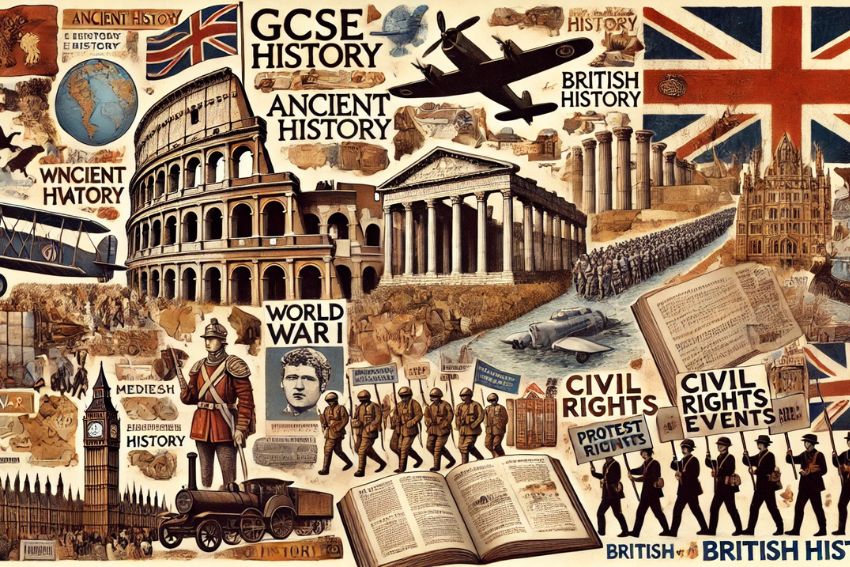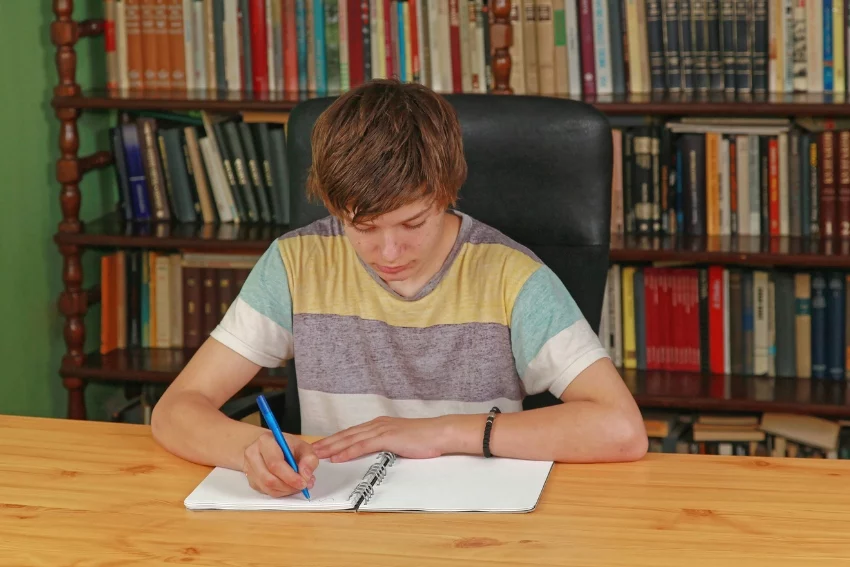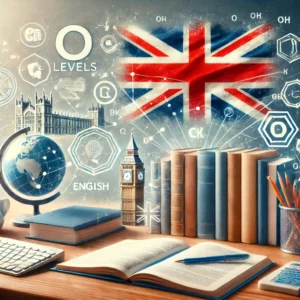GCSE History equips students with invaluable skills, such as critical thinking, analytical reasoning, and the ability to construct well-supported arguments. Through the study of various historical periods, themes, and GCSE History topics, students gain a deeper understanding of how past events shape the present and develop the ability to assess evidence and interpret multiple viewpoints. These skills are transferable to many areas of life and lay a solid foundation for academic and personal growth.
GCSE History provides students with tools to engage thoughtfully with current events, recognizing patterns and understanding the consequences of actions in a global context. Whether students pursue further study or enter the workforce, history equips them with the analytical mindset needed to navigate the complexities of the modern world. In this blog, we provide comprehensive information about GCSE History Topics and step-by-step guidance through this Subject. So, let’s start!

Key Components of GCSE History Topics
GCSE History spans a wide range of historical periods, offering students the chance to explore the evolution of societies and ideas over time. Key periods typically covered include:
- Medieval History (500-1500): Topics in this period may explore events like the Norman Conquest or life during the Black Death, giving insight into the foundations of British and European society.
- Early Modern History (1500-1800): This era introduces significant developments, such as the Renaissance, the Reformation, and the English Civil War, all of which shaped political and cultural change.
- Modern History (1800-present): Topics include key events like the Industrial Revolution, the World Wars, and the Cold War, offering students a deeper understanding of recent history and its impact on the contemporary world.
Geographical Contexts:
GCSE History topics explores historical events from multiple geographical angles, helping students understand the interplay between local developments and global trends.
- British History: Students examine key moments in British history, such as the Magna Carta, the Tudors, or the development of democracy. This helps them appreciate the political, social, and cultural transformations within the UK.
- European History Topics: include pivotal events such as the French Revolution, the rise of nationalism, or the two World Wars. Aiming an understanding of how Europe’s history has shaped global politics and society.
- Wider World History: Students also engage with events beyond Europe, such as the American Civil Rights Movement, the Cold War’s global influence, or the decolonization of Africa and Asia.
Study Areas Covered By GCSE History Topics
GCSE History topics covers various study areas to provide students with both in-depth knowledge and a broad understanding of historical developments. These areas, Depth Studies, Period Studies, and Thematic Studies, offer different perspectives on the past, ensuring students engage with history from multiple angles, spanning short-term events to long-term changes.
Depth Studies: A Close Look at Specific Periods
Depth studies focus on short time spans, allowing students to explore particular events or societies in detail. This type of studies encourage students to evaluate specific events and decisions, fostering an understanding of the complexities behind historical outcomes historical sources and differing interpretations. For example, topics might include:
- Nazi Germany (1919–1939): Exploring the rise of Hitler, the impact of Nazi policies, and the social changes under the regime.
- The Norman Conquest (1066–1087): Investigating the political and societal transformation following William the Conqueror’s invasion.
- Elizabethan England (1558–1603): Studying the political and cultural impact of Elizabeth I’s reign, including tensions with Spain and the development of the arts.
Period Studies: Exploring Medium Time Spans
Period studies cover longer time spans of at least 50 years, focusing on significant historical developments and the challenges societies faced over several decades.
Edexcel’s GCSE History syllabus includes Depth Studies like Weimar and Nazi Germany, which are part of the current GCSE History Curriculum.
Examples of period studies include:
- The Cold War (1945–1991): Exploring the geopolitical tensions between the United States and the Soviet Union, and how the conflict influenced global politics.
- Britain: Health and the People (c.1000–present): Tracing the development of public health systems and medical advancements across centuries.
- America (1920–1973): Investigating the social, political, and economic shifts in the United States, from the Roaring Twenties to the Civil Rights Movement.
Period studies enable students to identify trends and turning points over time, helping them appreciate the impact of historical developments on modern society.
Thematic Studies: Analyzing Long-Term Changes
Thematic studies focus on broad themes that span across multiple historical periods, highlighting how certain aspects of society evolve or remain consistent over time. These units offer insights into the continuity and change in areas like politics, power, warfare, and social structures Common themes in thematic studies include:
- Power and Democracy: Examining the evolution of political systems from medieval monarchies to modern democracies.
- Conflict and War: Analyzing how warfare has shaped societies, from medieval battles to modern global conflicts.
- Migration and Society: Exploring how migration has influenced cultural diversity, trade, and social structures across different eras.
Thematic studies help students connect patterns across time periods, encouraging them to think critically about long-term developments and how past trends influence present-day events.

What Are GCSE History Skills?
Studying GCSE History equips students with essential skills that go beyond the classroom, fostering analytical thinking, effective communication, and informed decision-making. Through engaging with historical events and themes, students learn to evaluate sources, construct arguments, and understand multiple interpretations, skills that are valuable for academic success and everyday life.
Analysing Sources and Evaluating Evidence
A key component of GCSE History is teaching students to critically analyze historical sources, such as documents, letters, speeches, artefacts, and visual material. Students learn to ask questions like:
- Who created this source, and when?
- What message does the source convey, and what might be its purpose?
- Is the source reliable or biased?
This process helps students develop the ability to assess the credibility of information and use evidence meaningfully in constructing historical narratives.
Constructing Historical Arguments and Understanding Interpretations
GCSE History encourages students to construct well-reasoned arguments based on their analysis of historical evidence. By examining events from multiple angles, students gain an appreciation of how interpretations of history can vary depending on perspective. For example, the same event, such as the Cold War or the British Empire, may be viewed differently by individuals from different nations or backgrounds.
Students learn that history is not just about facts but also about interpretations. They develop the ability to analyse how and why historians might disagree, and they practise supporting their arguments with solid evidence.
Building Structured Narratives and Using Evidence Critically
In addition to analysing sources and constructing arguments, GCSE History teaches students how to develop coherent, structured historical narratives. Using evidence critically involves selecting the most relevant information to support key points, rather than overwhelming arguments with unnecessary detail. This process helps students focus on the bigger picture while maintaining precision in their analysis.
GCSE History Topics Across Exam Boards
GCSE History offers a wide range of topics across different exam boards, including AQA, Edexcel, OCR, WJEC, Eduqas, and CCEA. Each board designs its syllabus to reflect various periods, themes, and geographical contexts, giving students opportunities to explore both British and global history through diverse topics and perspectives. While the core themes overlap, the exam boards differ in which history topics are mandatory and which are optional in their history GCSE syllabus.
AQA
AQA’s GCSE History specification provides students with options to study a mix of British and international history. Key topics include:
- Conflict and Tension: The interwar years (1918-1939) or the Cold War (1945-1972).
- British History: Topics like Elizabethan England or Norman England.
- Power and the People: Tracing the evolution of democracy in Britain from the Magna Carta to modern times.
- Health and the People: A thematic study focusing on the development of medicine from the medieval period to the present day.
Edexcel (Pearson)
Edexcel’s GCSE History offers a balance of period, thematic, and depth studies with British and world history. Popular topics include:
- Weimar and Nazi Germany (1918–1939).
- The American West (1835–1895).
- Early Elizabethan England (1558–1588).
- Crime and Punishment through Time: A thematic study from c.1000 to the present.
- The Cold War (1945-1991): Examining global tensions during the post-war era.
OCR
OCR’s GCSE History curriculum provides flexibility, with thematic and depth studies. It includes topics like:
- The People’s Health (c.1250 to present).
- The Norman Conquest (1065-1087).
- Living under Nazi Rule (1933-1945).
- The Making of America (1789-1900).
- International Relations (1918-2001): Focusing on global conflicts and peace efforts.
WJEC and Eduqas
WJEC and Eduqas share similar syllabi, with a strong focus on British and European history. Key topics include:
- Germany in Transition (1919-1939).
- The Development of the USA (1929-2000).
- The Elizabethan Age (1558-1603).
- Changes in Crime and Punishment: A thematic study covering key developments across centuries.
- The Cold War: Exploring the causes, conflicts, and consequences of this global tension.
CCEA (Northern Ireland)
CCEA’s GCSE History curriculum offers students in Northern Ireland a mix of local, national, and international history. It features topics such as:
- Nazi Germany (1933–1945).
- The Cold War (1945-1991).
- Northern Ireland (1920-1998): Focusing on the political and social conflicts within the region.
- The History of Medicine: A thematic study from ancient times to the modern day.

Assessment Objectives and Methods in GCSE History
GCSE History assessments evaluate students across multiple skill areas, ensuring they demonstrate both factual knowledge and the ability to think critically. The exam structure reflects this by focusing on knowledge recall, analysis, and source interpretation, helping students develop a well-rounded understanding of historical events and processes.
Breakdown of Assessment Objectives (AOs)
- AO1: Knowledge and Understanding
- This objective assesses students’ ability to recall, select, and deploy relevant historical knowledge accurately.
- It tests their understanding of key events, people, and themes from the course content.
- Students are expected to write precise answers with relevant examples, ensuring their responses are both detailed and focused.
- AO2: Analysis and Explanation of Historical Events
- AO2 evaluates the ability to analyze the significance of events and explain cause-and-effect relationships.
- Students must show they can structure coherent arguments, identify key turning points, and evaluate the impact of historical developments.
- These questions often require extended responses where students must interpret historical processes, such as “Why did the Cold War escalate?” or “What were the consequences of the Industrial Revolution?”
- AO3: Source Analysis and Evaluation
- This objective assesses the ability to analyze, interpret, and evaluate historical sources for meaning, reliability, and bias.
- Students must understand how to use sources effectively to support or challenge a historical argument.
- Typical questions might involve comparing two sources or determining the usefulness of a particular document in understanding a historical event.
- AO4: Interpretation and Judgement
- AO4 focuses on students’ ability to critically evaluate different historical interpretations.
- They are required to assess why historians might disagree on the same event and judge which interpretation is more convincing based on the evidence provided.
- This part of the assessment teaches students to appreciate that history involves multiple viewpoints and encourages them to form reasoned conclusions.
What Types of Questions Should You Expect in GCSE History Exams?
GCSE History exams feature various types of questions to test different skills. Here’s a breakdown of the common question types and the responses students are expected to provide:
- Short-Answer Questions – These questions focus on knowledge recall and typically require concise responses. For example: “Name two causes of World War I.” Student can response with a brief, fact-based answer without detailed explanation.
- Explain/Describe Questions require analytical skills and structured explanations. For example: “Explain the reasons for the abolition of the slave trade.” Expected response: A well-developed answer with key points supported by examples, written in paragraphs.
- Source-Based Questions involve source analysis and evaluation, asking students to interpret the content or reliability of historical sources. For example: “How useful is this source in understanding public opinion during the Cold War?” Students need to comment on the source’s content, origin, and purpose, discussing both strengths and limitations.
- Compare and Contrast Questions require students to compare sources or historical events to identify similarities and differences. Example: “Compare these two interpretations of the Treaty of Versailles.” Students should answer with balanced response that discusses commonalities and differences, with a focus on evidence.
- Extended Essay Questionss test analytical skills, interpretation, and the ability to construct arguments. Example: “To what extent was World War II a turning point in modern history?” Expected response: A structured essay with a clear introduction, developed arguments, and a conclusion, using evidence to support the student’s viewpoint.

Recommended Textbooks To Learn GCSE History Topics
Recommended Textbooks
These textbooks are tailored to specific exam boards, ensuring students study content relevant to their syllabus:
- AQA GCSE History Textbook – Thematic and British Depth Studies by Tim Jenner, ISBN: 978-0198412662
- Edexcel GCSE History (9-1) Textbook – Weimar and Nazi Germany by Ben Walsh, ISBN: 978-1292127347
- OCR GCSE History A: Explaining the Modern World – ISBN: 978-0198370115
- WJEC Eduqas GCSE History – The Development of the USA by Steve Waugh, ISBN: 978-1510403834
- CCEA GCSE History – Modern World History by Finbar Madden, ISBN: 978-1780731185
These textbooks cover key topics with exam-specific questions and practice tasks, offering valuable support for both in-class learning and independent study.
Online Resources For GCSE History Topics
- BBC Bitesize – offers concise topic summaries, interactive quizzes, and revision guides for all major GCSE History topics. It is a great resource for quick revision and self-assessment quizzes.
- AQA Exam Board – AQA provides specifications, sample papers, and mark schemes. Students can download past papers and use the mark schemes to practice answering questions accurately.
- Edexcel (Pearson) Exam Board – This site offers access to past papers, examiner reports, and revision guides aligned with the Edexcel specification.
- OCR Exam Board – OCR provides a range of resources, including sample assessments, planning guides, and student-friendly specifications to help with preparation.
- WJEC and Eduqas Exam Boards – These boards offer revision tools, past papers, and marking schemes to help students understand what examiners expect.
- CCEA Exam Board – CCEA provides syllabus details, examiners’ reports, and useful resources for students following the Northern Ireland curriculum.
Other Educational Resources For GCSE History Topics
- Quizlet – A tool for creating and using flashcards to memorize key dates, events, and historical figures.
- YouTube Channels – Channels like “Horrible Histories,” “History Matters,” and “Mr Bruff” offer engaging video content covering key GCSE topics.
- History Learning Site – Provides detailed overviews of historical periods and themes relevant to the GCSE syllabus.
How to Use These Resources Effectively for GCSE History Exam Preparation?
- Organise Your Revision Plan: Use the syllabus and exam board specifications to create a timetable, focusing on specific topics each week. Find out more about GCSE History topics revision here.
- Practice with Past Papers: Download past papers from your exam board’s website and time yourself when completing them. Use the mark schemes to understand what examiners are looking for.
- Supplement Learning with BBC Bitesize: Use Bitesize for quick topic reviews and self-quizzes to identify areas where you need improvement.
- Use Flashcards for Key Facts: Quizlet is excellent for memorising important dates, people, and events. Review your flashcards regularly to reinforce knowledge.
- Get Interactive with Seneca Learning: Seneca’s interactive courses break down topics into manageable sections, ideal for those who prefer active revision.
- Watch Educational Videos: Use YouTube channels to visualise historical events and concepts. Videos offer engaging summaries and can make complex topics easier to understand.
Conclusion
GCSE History therefore builds essential skills like critical thinking, analytical reasoning, and constructing well-supported arguments. Moreover, it helps students understand how past events shape the present, fostering the ability to interpret evidence and multiple perspectives. As a result, these transferable skills lay a strong foundation for academic success and personal growth.
In addition, for those needing extra help, our Online GCSE History Tutors offer personalized guidance to help you master challenging GCSE history Topics. We hope that this guide will support learners in their journey, and furthermore, they can explore A-level History or related subjects, deepening their knowledge. Ultimately, the skills gained in GCSE History support future studies and careers in fields like history, politics, and law, equipping students to engage thoughtfully with the world. Good luck!
Other Articles You May Be Interested about:
GCSE History – AA America, 1840–1895: Expansion and Consolidation
GCSE History: How to Get a 9








